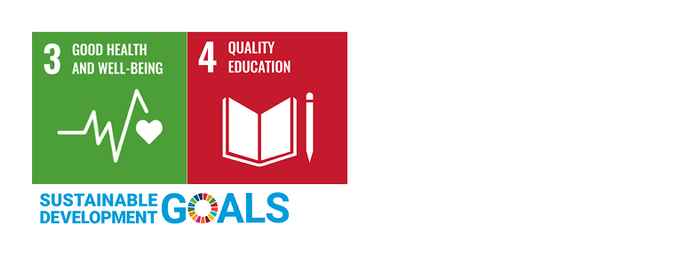Honoursmodule: Politics of health and exclusion in everyday lives
Lecturer(s)
Dr. C. Broër
Entry requirements
Second-year and third-year Bachelor's students participating in an honours programme.
Recommended prior knowledge
None
Learning Objectives
At the end of this course, you will be able to analyze and understand your own and other people’s health from a social science perspective. You will understand how health is related to in- and exclusion, how groups form around health issues and lifestyle and all of this is affected by politics and health systems. At the end of this course you will be accustomed to innovative and fun methods. What you learn here, can easily be applied in many disciplines and jobs. Your teacher is working in various multidisciplinary projects and can help you translate what you learn here to other settings.
Content
If you look at societies now, halfway 2021, concerns about health, in the guise of Covid-19, are paramount. If you look at your own daily life, you will also see that next to concrete diseases, keeping in good health is relevant when you do groceries, exercise and so forth. While you might not be aware of it, the chance that you do indeed remain healthy strongly depends on where and when you are born, on gender, class and race. In the Netherlands, poor men die about ten years earlier than rich men. And although we spent a lot of money on health, we don’t live longer or healthier. We also see social groups forming around health issues, again, think of Covid-19 protests. Health can also be a related to exclusion, think for example about the stigma around obesity. We also know that discrimination and racism can make people sick.
In this course, we will look at health in everyday life in different contexts and you will learn how to observe common interactions, how to record those and how to interpret interactions from different perspectives using novel software. Through collaborative research and interpretation, you will get a deeper understanding of inclusion and exclusion in the area of health and how politics is involved. You will keep a journal, share observations and build a common archive which we can use for further study. Since we are looking at (our own) everyday life, use literature and discuss different interpretations of moments of in- and exclusion, this course will challenge us to adjust our assumptions. You will learn how to build shared understandings and explore differences in terms of the experiences of in- and exclusion based on health.
We will look at themes like:
- “What and when and where” is health?
- Inclusion and exclusion: biological, psychological and social explanations
- Examples: Covid-19; HIV-AIDS in Vietnam; children Ghana…
- Positionality and beyond: how to establish shared and non-shared meanings collaboratively
Teaching methods
- Collaborative research project
- 12 weekly group meetings and dedicated research in between
- Reading, writing, observation, reflection
- Journal writing and analysis
- Photo-voice or other participatory / creative methods
- Adjust program based on students background (academic and social) to include diverse experiences.
- Awareness of positionality. Making an inventory of perspectives at start and end.
- Our own everyday life: training in observation, data-collection and qualitative interpretation, particularly forms of language and discourse analysis.
Assessment:
Grades based on participation in data collection and interpretation and final research paper.
Study material:
Canvas
Min/max participants
max. 25
Schedule
The schedule will be available on Datanose
Registration
Registration is possible for 2nd year (or higher) students participating in an Honours programme. The registration for the Honours courses will start on June 1, 10 am - June 4, 11 pm, You can register through the online registration form that will appear on Honoursmodules IIS (registration is NOT through SIS)
Placement will be at random and students will be informered about their placement in the week of June 21.
There is NO guarantee for placement if you register AFTER June 4, so make sure you apply on time!
For questions about registration please email to: Honours-iis@uva.nl
SDGs in education
The IIS strives to reflect current societal issues and challenges in our elective courses, honours modules and degree programmes, and attempts to integrate the following Sustainable Development Goals (SDGs) in this course. For more information about these goals, please visit the SDGs website

- Mode
- Honours programme
- Credits
- 6 ECTS,
- Language of instruction
- English
- Conditions for admission
- Starts in
- September